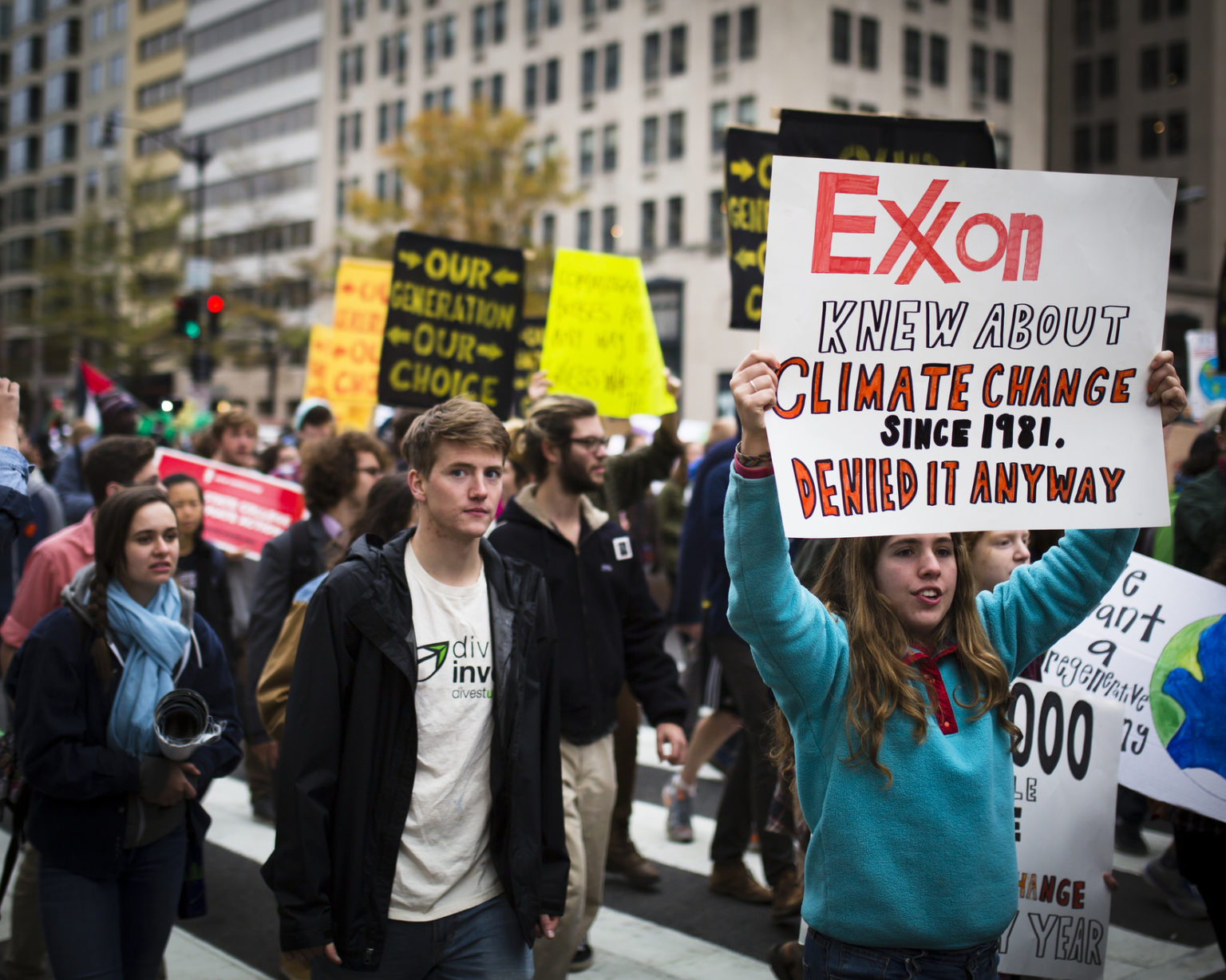By Dan Zegart, orginally published at Climate Investigations Center.
Former ExxonMobil CEO and now-Secretary of State Rex Tillerson personally approved a scheme for accounting for the financial impact of greenhouse gas emissions on the company’s business that deliberately misled investors, one that continued right through ExxonMobil’s May 31st shareholders’, according to an explosive court filing by the New York Attorney General, Eric Schneiderman.
Schneiderman claims that beginning in 2007, ExxonMobil used one set of figures in describing carbon-related risks to investors but internally used another, secret set. The net result was to vastly understate the financial danger to the company.
The June 2nd court filing also accuses the ExxonMobil of destroying countless documents despite the fact that it had a legal obligation to preserve all records potentially relevant to the attorney general’s investigation, which is probing possible fraud in ExxonMobil’s disclosures about climate change to investors and the public.
“These failures directly resulted in the destruction of months, and in many cases, more than a year’s worth, of emails and other electronic documents belonging to key custodians including the company’s top management and reserves analysts,” the attorney general writes.
Material from a secret email account maintained by Tillerson’s under the name “Wayne Tracker” was also evidently destroyed.
An ExxonMobil lawyer acknowledged that she “knew in ‘early 2016’ about the second email address for Rex Tillerson — the Wayne Tracker email address — and that she did not disclose that email address to OAG, stating that it would ‘be an interesting test of whether the Attorney General’s office is reading the documents,’ ” according to the filing (emphasis in the original) in state court in Manhattan.
This omission led to “months of automatic destruction of relevant correspondence involving Mr. Tillerson,” the court papers charged.
Courts can impose substantial financial and other sanctions – and even criminal penalties – for destruction of evidence.
The attorney general did present a number of preserved emails that seem to show Tillerson’s fingerprints on the decision-making for how to minimize to the public the likely impact of a carbon-constrained business environment – such as new national and international greenhouse gas regulations – not only on ExxonMobil’s business operations, but on the value of its oil and gas assets.
A May 2011 email exchange between ExxonMobil managers describes two different price calculations for the potential cost to the company of a ton of emitted carbon dioxide, one used internally and one presented to the public as the “proxy” for GHG costs that the company supposedly used in calculating the impact on ExxonMobil’s bottom-line.
“I have pointed out the difference in past reviews,” writes Tom R. Eizember, then Planning Manager for Corporate Strategic Planning at the company.
“Rex has seemed happy with the difference previously – appeared to feel it provides a “conservative” basis (but only if viewed from the perspective of claiming economics credits to reduce emissions; it is not conservative vs EO from the perspective of debiting actions that increase emissions),” Eizember continues.
The AG‘s court filing provides a significant amount of new, explosive information about what the investigation, which began in 2015, is undercovering about the world’s largest oil company’s climate secrets. These are backed up by 33 exhibits that include internal corporate emails, a transcript of an investor conference call, and XOM‘s own reports on carbon risk.
Main image: A 2015 protest in Washington DC. Credit: Flickr/Johnny Silvercloud (CC BY–SA 2.0)
Subscribe to our newsletter
Stay up to date with DeSmog news and alerts






